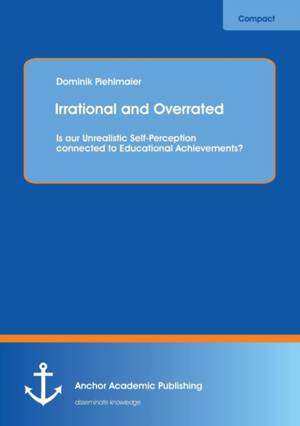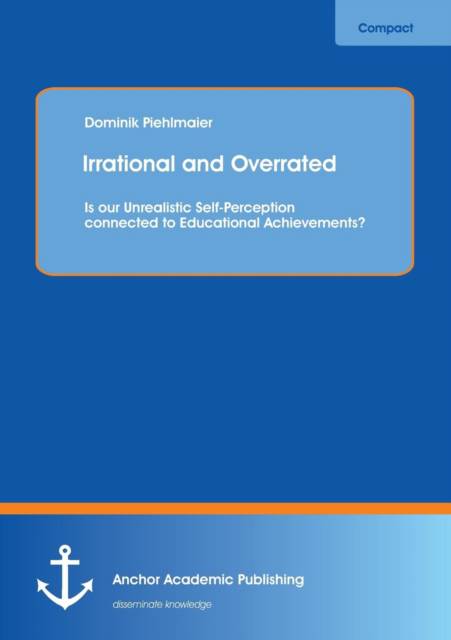
- Afhalen na 1 uur in een winkel met voorraad
- Gratis thuislevering in België vanaf € 30
- Ruim aanbod met 7 miljoen producten
- Afhalen na 1 uur in een winkel met voorraad
- Gratis thuislevering in België vanaf € 30
- Ruim aanbod met 7 miljoen producten
Zoeken
Irrational and Overrated
Is our Unrealistic Self-Perception connected to Educational Achievements?
Dominik Piehlmaier
€ 34,45
+ 68 punten
Omschrijving
This book examines the relationship between education and excessive confidence in situations of uncertainty. For this purpose, a questionnaire with 10 pseudo general knowledge questions was designed whereby their degree of difficulty exceeds the knowledge of an average student by far. It was investigated whether subjects (N = 535) would acknowledge this condition and its associated nescience. If that is the case, they will answer the 10 questions within an extremely wide confidence interval in order to meet the predefined 90% accuracy requirement. The focus of investigation was in Southern Germany as the school system regularly receives top marks in national educational rankings. In addition to the empirical study, the paper defines the distortion of judgment and identifies its relevant factors. It gives a detailed explanation of the German education system, and states the criticism of the concept of overconfidence. The paper concludes with a recommendation for action and ventures a look ahead. The main intention of the study is to identify a possible factor which influences human behavior towards a biased decision-making process. It is crucial to understand all relevant factors in order to take actions against the negative effects of overconfidence.
Specificaties
Betrokkenen
- Auteur(s):
- Uitgeverij:
Inhoud
- Aantal bladzijden:
- 54
- Taal:
- Engels
- Reeks:
Eigenschappen
- Productcode (EAN):
- 9783954890750
- Verschijningsdatum:
- 13/06/2013
- Uitvoering:
- Paperback
- Formaat:
- Trade paperback (VS)
- Afmetingen:
- 148 mm x 210 mm
- Gewicht:
- 81 g

Alleen bij Standaard Boekhandel
+ 68 punten op je klantenkaart van Standaard Boekhandel
Beoordelingen
We publiceren alleen reviews die voldoen aan de voorwaarden voor reviews. Bekijk onze voorwaarden voor reviews.











